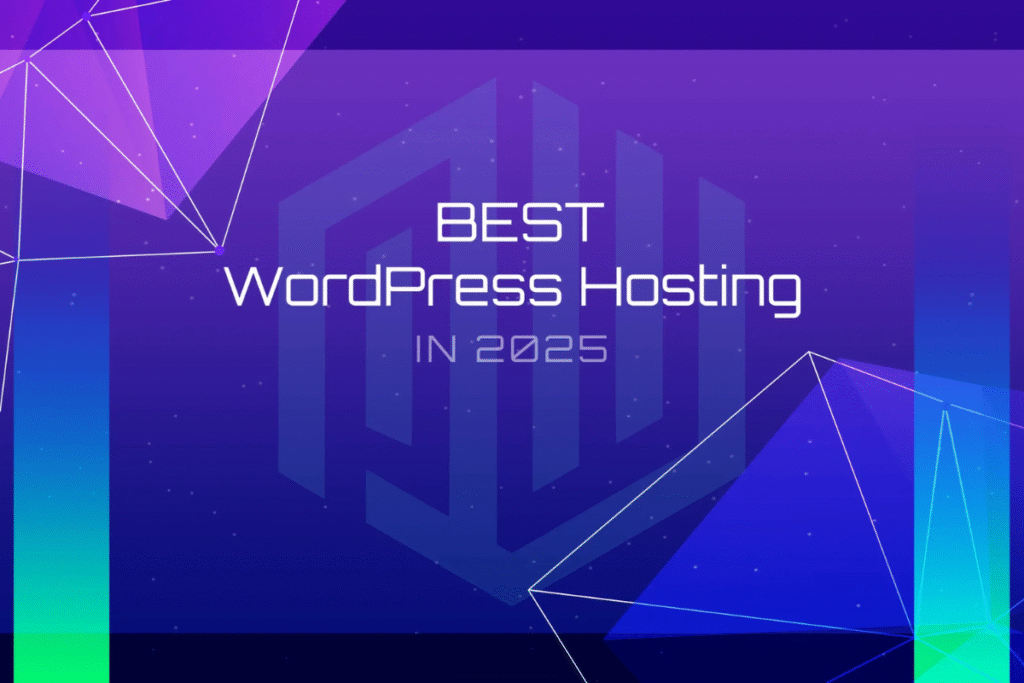In today’s digital-first world, having a strong online presence is no longer optional—it’s essential. Whether you’re launching a personal blog, an e-commerce store, or a business website, WordPress remains the most popular platform for building websites. According to recent reports, WordPress powers over 40% of websites worldwide in 2025, thanks to its flexibility, scalability, and beginner-friendly ecosystem.
But here’s the catch: your website is only as good as the hosting behind it. Choosing the right WordPress hosting can make or break your online journey. Slow loading times, frequent downtime, or poor customer support can frustrate both you and your visitors. On the flip side, a reliable hosting plan ensures speed, security, and growth.
If you’re new to the world of WordPress hosting, this Beginner’s Guide to WordPress Hosting in 2025 will help you understand the basics, compare hosting types, and select the best plan for your needs.
What is WordPress Hosting?
WordPress hosting is a specialized hosting service optimized to run WordPress websites smoothly. Unlike generic web hosting, WordPress hosting provides pre-installed WordPress, enhanced performance, security features, and support tailored for WordPress users.
In 2025, hosting companies are more advanced than ever, offering AI-powered optimizations, automated backups, and built-in security protocols. This means you don’t need to be a tech genius to run a fast, secure, and reliable website.
Why WordPress Hosting Matters in 2025
The internet is more competitive than ever, with users expecting lightning-fast websites and seamless experiences. Google also prioritizes website speed and uptime when ranking sites in search results. That’s why hosting is no longer just about “where your site lives” but also how it performs.
Here are key reasons why WordPress hosting is crucial in 2025:
-
Performance & Speed – Hosting providers use advanced caching, SSD storage, and CDN integration to keep websites blazing fast.
-
Enhanced Security – With cyber threats rising, WordPress hosting offers firewalls, malware protection, and DDoS prevention.
-
Automatic Updates – Hosting platforms often update WordPress, plugins, and PHP automatically.
-
24/7 Expert Support – Dedicated WordPress support teams can troubleshoot issues quickly.
-
Scalability – Hosting plans in 2025 allow seamless scaling as your website grows.
Types of WordPress Hosting in 2025
Not all WordPress hosting is created equal. Depending on your budget, technical expertise, and website goals, you’ll need to choose from different types of hosting. Let’s break them down:
1. Shared WordPress Hosting
-
Best for beginners and small websites
-
Your website shares server resources with multiple sites.
-
Pros: Affordable, easy to set up, beginner-friendly.
-
Cons: Limited performance, less control, possible slowdowns during peak traffic.
2. Managed WordPress Hosting
-
Best for businesses and professionals
-
Hosting provider handles all technical aspects: updates, backups, security, and performance optimization.
-
Pros: Hassle-free, fast performance, expert support.
-
Cons: Higher cost than shared hosting.
3. VPS WordPress Hosting (Virtual Private Server)
-
Best for medium to large websites
-
Offers dedicated resources within a shared environment.
-
Pros: Greater control, scalability, better performance than shared hosting.
-
Cons: Requires some technical knowledge.
4. Cloud WordPress Hosting
-
Best for growing businesses and e-commerce
-
Websites are hosted across multiple servers (cloud infrastructure).
-
Pros: High uptime, scalable, pay-as-you-go pricing.
-
Cons: Can be more expensive, requires monitoring.
5. Dedicated WordPress Hosting
-
Best for large enterprises and high-traffic websites
-
You get an entire server dedicated to your site.
-
Pros: Maximum performance, customization, control.
-
Cons: Expensive, requires technical expertise.
Key Features to Look for in WordPress Hosting (2025)
When selecting WordPress hosting, look beyond price and storage. In 2025, hosting companies offer a variety of features designed to improve performance and security. Here’s what to prioritize:
-
Speed & Performance – Look for SSD storage, built-in caching, and CDN integration.
-
Uptime Guarantee – A reliable host should promise 99.9% uptime.
-
Scalability – Ensure you can upgrade resources as your site grows.
-
Security Tools – SSL certificates, malware scans, and DDoS protection.
-
Automatic Backups – Daily or weekly backups are essential.
-
One-Click WordPress Installations – Simplifies setup for beginners.
-
Customer Support – 24/7 WordPress-expert support is crucial.
-
AI & Automation – In 2025, many hosts use AI to optimize site performance automatically.
Top WordPress Hosting Providers in 2025
Here are some leading hosting providers in 2025, known for reliability and performance:
-
Bluehost – Still one of the most beginner-friendly and WordPress-recommended hosts.
-
SiteGround – Offers excellent speed, security, and support.
-
Hostinger – Affordable plans with AI-powered optimizations.
-
WP Engine – Popular for managed WordPress hosting.
-
Kinsta – Premium hosting powered by Google Cloud.
-
DreamHost – Recommended by WordPress.org with unlimited storage options.
How Much Does WordPress Hosting Cost in 2025?
Prices vary based on hosting type and features:
-
Shared Hosting – $2 to $10/month
-
Managed Hosting – $15 to $50/month
-
VPS Hosting – $20 to $100/month
-
Cloud Hosting – $10 to $200/month (depending on usage)
-
Dedicated Hosting – $80 to $500/month
The key is to start with a plan that fits your budget and upgrade as your site grows.
Step-by-Step Guide: Setting Up WordPress Hosting
If you’re just starting, here’s a simple process to launch your WordPress website:
-
Choose a Hosting Provider – Select a plan that fits your goals.
-
Register a Domain Name – Many hosts offer free domains for the first year.
-
Install WordPress – Use the one-click installer provided by your host.
-
Pick a Theme – Choose a design template that matches your brand.
-
Install Plugins – Add functionality (SEO, security, backups, etc.).
-
Customize & Launch – Add pages, content, and publish your site.
Common Mistakes Beginners Make (and How to Avoid Them)
-
Choosing the Cheapest Hosting Plan – Low-cost plans may not handle your traffic.
-
Ignoring Security – Always enable SSL and backups.
-
Overloading Plugins – Too many plugins slow down your site.
-
Skipping Scalability – Pick a host that allows upgrades.
-
Not Reading the Fine Print – Check renewal rates before signing up.
Future of WordPress Hosting Beyond 2025
The hosting industry is evolving rapidly. Expect to see:
-
AI-powered optimizations – Hosting platforms will self-tune for best performance.
-
Stronger Cybersecurity – Advanced threat detection with real-time response.
-
Green Hosting Solutions – Eco-friendly hosting with renewable energy.
-
Edge Computing – Faster content delivery by hosting sites closer to users.
-
Deeper WordPress Integrations – Hosting dashboards directly integrated with WordPress admin.
Conclusion
Choosing the right WordPress hosting in 2025 doesn’t have to be overwhelming. Start by understanding your needs, exploring hosting types, and focusing on features that ensure performance, security, and scalability. Whether you’re a beginner launching your first blog or a business owner running a high-traffic site, the right hosting provider will help your website thrive.
Remember: Hosting is the foundation of your online presence—invest wisely.
FAQs
Do I need WordPress-specific hosting to run a WordPress site?
Not necessarily. While you can run WordPress on general hosting, WordPress-specific hosting provides better performance, security, and support.
What’s the difference between shared and managed WordPress hosting?
Shared hosting is cheaper but shares resources with multiple sites. Managed hosting is more expensive but takes care of updates, security, and performance automatically.
Which hosting is best for beginners in 2025?
Shared hosting is a good starting point for beginners. However, if budget allows, managed WordPress hosting is ideal for hassle-free setup.
How important is SSL in 2025?
SSL is essential. It ensures your site is secure, builds trust, and improves Google rankings. Most hosts now include free SSL certificates.
Can I switch hosting providers later?
Yes, migration is common and most providers offer free or paid migration services.

